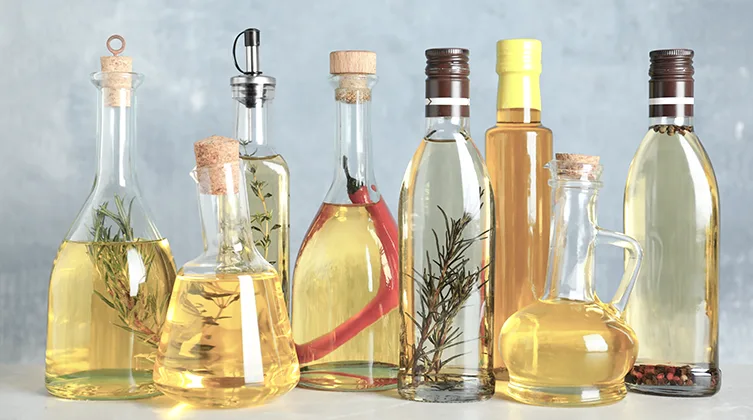Understanding the science behind which oils to use can be confusing. Oils have different smoke points – that is, the temperature at which they oxidise or become rancid. Why is this important? When fats and oils undergo oxidation, they release free radicals and harmful compounds. These can cause stress and damage. We definitely don’t want to be consuming these!
High heat: (okay to cook with)
- Avocado Oil
- Coconut Oil
- Ghee
- Organic Butter
- Sesame Oil
- Macadamia Oil
- Rice Bran Oil
Medium to low heat:
- Olive Oil
Cold oils: (use in salads, etc.)
- Olive Oil
- Flaxseed Oil
- Macadamia Oil
- Walnut Oil
- Hemp Seed Oil
Macadamia, Avocado, Coconut and Extra Virgin Olive Oil are staples in our household.
What about vegetable oils?
Most vegetable oils are a product of industrialism and are highly processed and refined. Unfortunately, they are often deemed healthy by many nutrition professionals. Personally, I avoid them and never use them in my cooking. You will find they are a common ingredient in many processed foods. Even more reason to avoid them.
SO WHAT MANY DISGUISES DOES VEGETABLE OIL WEAR?
The term “vegetable oil” is commonly used on food labels instead of specifying the exact oil used. Therefore, the actual source remains illusive. Check food labels for the following, and stick with the oils previously mentioned for your cooking and salads:
- Vegetable Oil
- Canola Oil
- Soybean Oil
- Cottonseed Oil
- Rapeseed Oil
- Sunflower Oil
- Safflower Oil
Other than heat, oxygen and light are also drivers of oxidative damage. Therefore, store your oils in a dry, dark place and ensure the lid is screwed on tightly.





